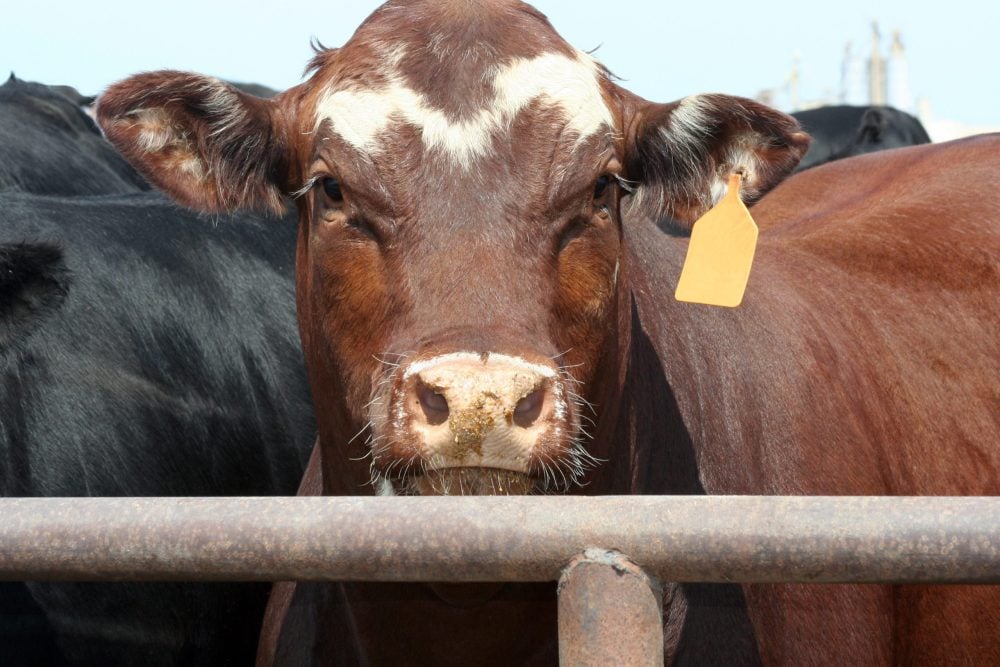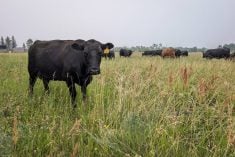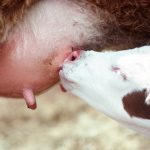A Calgary company specializing in additives for livestock feed has picked up public funding to study dietary nucleotides and how much of them should be used in feeds to boost growth and fight disease.
Federal Industry Minister Tony Clement on Wednesday pledged $271,177 from the National Research Council of Canada’s industrial research assistance program (NRC-IRAP) for Canadian Bio-Systems, a company whose products include enzymes, silage inoculants, pigmenters, flavouring, pellet binders, yeast-based supplements and other enhancers and additives for feed.
The company plans to put the funds toward study “to gain a better understanding of the optimal level of supplementation of dietary nucleotides in swine, poultry, aquaculture, and dairy cattle diets.”
Read Also

U.S. livestock: Cattle futures plunge daily limits on beef price fears
Reuters — Most Chicago Mercantile Exchange live cattle and feeder cattle futures contracts fell their respective daily limits on Friday,…
With such data in hand, the government said, “Canadian livestock could soon have access to a healthier alternative for antibiotics.”
Nucleotides, which some researchers have dubbed “the building blocks of DNA,” are components of nucleic acids such as DNA and RNA, and thus are needed when cells divide and reproduce.
Dietary nucleotides can be had when livestock eat and digest nucleic acids in their regular feed. However, biochemists note, nucleotides are highly stable in that form and tough to break down by digestion.
Supplements containing “free” nucleotides have been found to provide the chemical without the binding of a nucleic acid, making nucleotides much more nutritionally available to an animal.
According to a 2007 essay by biochemist Klaus Hoffmann in Feed.Mix magazine, nucleotide-supplemented diets have shown promise for their “accelerated immune response” in animals, as they allow the cells of the immune system to proliferate, along with gastrointestinal cells, blood cells and others that don’t produce enough nucleotides on their own.
Nucleotide supplements can also help improve young animals’ performance, as their development of tissues and organs depends on “unrestricted and fast cell division of various kinds of cells,” Hoffmann wrote.
Canadian Bio-Systems’ project will involve measuring basic health and immune indices, developing data to support marketing efforts, and conducting growth performance trials using dietary nucleotides.
NRC-IRAP, which itself recently picked up additional federal Economic Action Plan funding worth $200 million over two years, provides technical and business advisory services and financial support for innovations being developed by qualified Canadian small and medium-sized businesses.
















